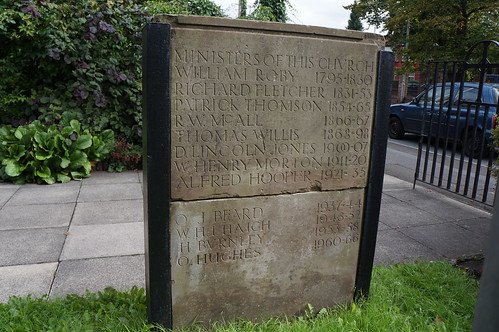
William Roby was invited to preach at the Cannon Street chapel in 1830, and they moved to larger premises on Grosvenor Street in 1807. The chapel was renamed Roby in his memory after his death. I doubt if many of the founders of the Manchester & Salford Co-op would have heard him speak. But they would have been familiar with Richard Fletcher who went off to pastures new in Melbourne, Victoria, and Patrick Thomson who had a long career at various independent churches.
As a side note to illustrate how history is an ivy that intertwines. William Roby (1766-1830) ran an academy to teach independent preachers, and from 1803-1808 it was funded by Robert Spear (1792-1819) a wealthy cotton merchant in Manchester. "Robert Owen describes how Spear sent him the first two bags of Sea Island cotton to land in Britain. It was through Spear's sister that Owen met his future wife Caroline Dale." - paraphrased from the Life of Robert Owen (1920). The New Lanark mills were part of the marriage settlement. Yet another co-op connection.
Further Reading :
William Roby brief biog
History of the Roby Church
No comments:
Post a Comment